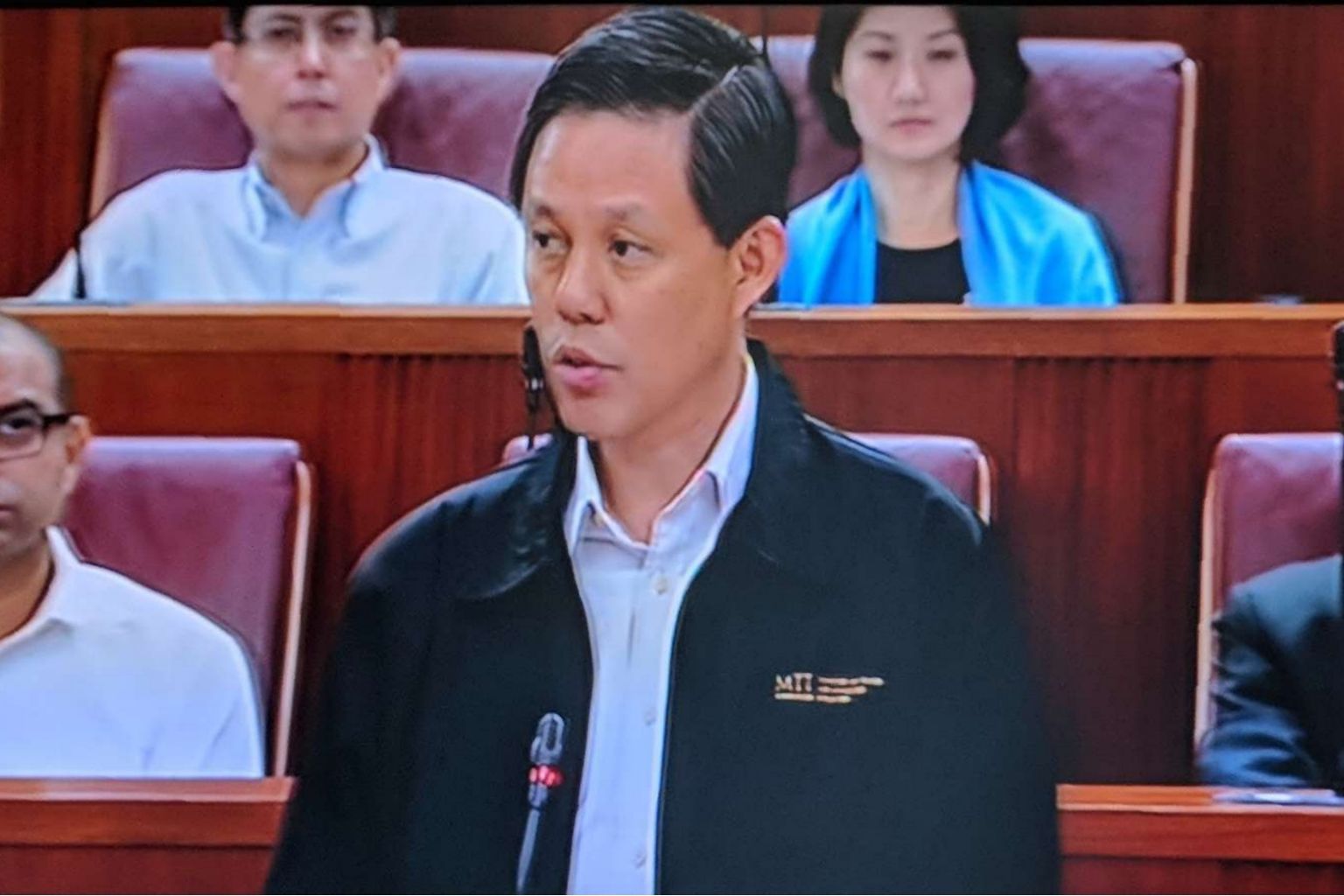Parliament: Singapore affected by US-China trade tensions in several ways, says Chan Chun Sing
Sign up now: Get ST's newsletters delivered to your inbox

Minister for Trade and Industry Chan Chun Sing said Singapore's greatest concern is the impact from an escalation of the trade conflict into a vicious cycle of tit-for-tat measures between major economies.
PHOTO: GOV.SG
Follow topic:
SINGAPORE - Ongoing trade tensions and tit-for-tat tariffs between the United States and China are likely to have a modest net impact on Singapore, based on the tariffs announced so far, said Minister for Trade and Industry Chan Chun Sing on Monday (July 9).
However, he added, this assumes that the trade tensions between the US and China do not escalate further.
Singapore's greatest concern is the impact from an escalation of the trade conflict into a vicious cycle of tit-for-tat measures between major economies, he said.
If the trade conflict triggers a sharp and sustained plunge in business sentiment and consumer confidence, or a tightening of global liquidity, then Singapore's open economy will be significantly affected, he added.
Bilateral trade between the US and China indirectly contributes to 1.1 per cent of Singapore's gross domestic product.
The trade spat reached a new low last Friday (July 6) as the US tariffs on US$34 billion (S$46 billion) worth of Chinese goods kicked in and China responded with counter-tariffs on US$34 billion of US goods.
The moves followed several rounds of US tariffs on steel and aluminium imports, solar cells and washing machines, which applied to a broader range of countries.
Said Mr Chan: "The trade conflict between the US and China... will have global repercussions. Not only will it inhibit global trade and global growth, there will also be disruptions to supply chains impacting businesses, jobs and consumers."
In Parliament, he laid out how Singapore will be affected, in response to questions from Nominated MP K. Thanaletchimi and Mr Henry Kwek (Nee Soon GRC).
For one thing, Singapore-based general manufacturing and electronics companies which export certain products to the US will become less competitive compared with US manufacturers when the tariffs are added.
But Mr Chan said tariffs directly applicable to Singapore affect a relatively small set of products - namely solar cells and modules, washing machines, steel and aluminium.
Exports of these products to the US account for about a "relatively modest" 0.1 per cent of Singapore's total domestic exports to the world, he added.
He said the Government is working with affected companies on applications to exempt their products from the tariffs, and to see where else they can export their products.
Next, Singapore will also be indirectly affected by tariffs which do not apply to its own exports.
For instance, Singapore companies may sell parts that are used in China's exports to the US, which are hit by the tariffs.
"Singapore companies that produce intermediate goods used as inputs in the production of China's exports to the US may see softer demand for their goods," he said.
But these firms may be able to offset this impact by exporting their goods to other markets.
Traders in China may also buy more from the Asean region instead of from the US, because China's tariffs on US goods will make US imports less competitive, said Mr Chan.
He added that Singapore has developed strong trading networks and diversified sectors over the years, which "will enable companies in Singapore to navigate the disruptions and seek out new opportunities and alternative suppliers and demand markets".
Meanwhile, Singapore will continue to work with all like-minded partners to uphold a rules-based multilateral trading system, and work towards greater regional integration, he said.

